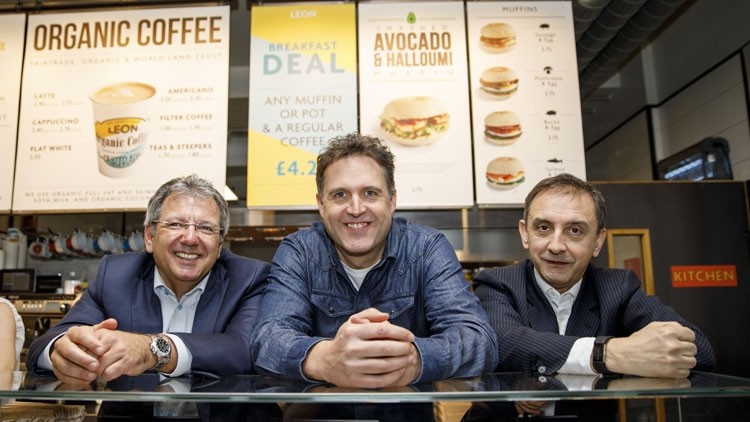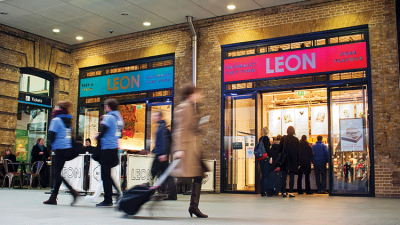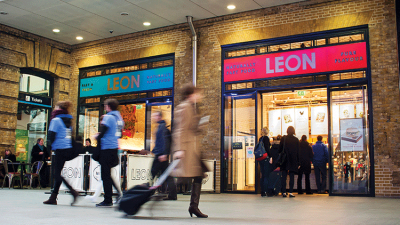Leon’s John Vincent: “The government can’t treat hospitality as a golden goose, because the goose is going to die”

Politicians have “no idea” how seriously the rising minimum wage, business rates and rents have impacted the industry, he says.
Vincent’s warning follows Leon’s announcement this week that it plans to open a further 20 sites in transport hubs across Europe over the next two years. The 'healthy fast food group' is among a number of restaurant operators turning to travel locations for expansion, with BrewDog, Barburrito and Spuntino all set to launch in airports this year, at a time when brands including Jamie’s Italian, Strada and Byron are closing high street restaurants.
However, he admits the move in to transport hubs is not without its own issues and will not allow operators to escape increasing costs.
“I don’t think any segment is the Holy Grail,” he says. “Airports take a turnover rate that can often be quite high, the prices of concessions has significantly increased and I don’t know whether that’s sustainable.
“The government and landlords cannot treat the hospitality industry like it’s some kind of golden goose, because the goose is going to die.
“Over the last four years [at Leon] we’ve seen same-store growth of 44% on a compound basis...if we hadn’t outrun the costs we’d be in shit right now, and that’s why a lot of people are [struggling].”
Brexit impact
Research from the Association of Licensed Multiple Retailers estimates that foreign nationals make up almost 40% of the eating and drinking out workforce, and restaurant groups including Wahaca, Ottolenghi and Pret A Manger have voiced their concern over potential limits on EU immigration post-Brexit.
Vincent says Leon, which has over 50 sites in the UK and Europe, has seen staff vacancies rise to 20 in the last year, when they should normally be “two or three at any one point”.
“The two biggest EU nationalities that we have represented in Leon are Spanish and Italian, but everyone from across the EU was very badly affected,” he says.
“Immediately after the referendum the morale got very low, people literally thought they weren’t welcome in the country.
“I had to do an internal film to say ‘guys we still love you, don’t think this vote means you’re not welcome in Britain’, because they genuinely felt it.”
Despite the industry’s problems Leon is still firmly on the expansion trail. This week the group announced it is teaming up with Bangkok-based food group Aylmer Aaharn, co-owned by chef David Thompson, to launch Thai concept Tuk Shop in central London this spring.
Vincent hopes the Leon brand can eventually reach 5,000 restaurants worldwide, but insists he is not complacent about its current success.
“We have a real productive paranoia, if people say nice things about Leon I find it excruciating. I find it so embarrassing as I think, ‘you don’t understand, it’s going to get so much better’. Within all of the team’s there’s this ‘don’t look yet, it’s not finished’ attitude.”

















